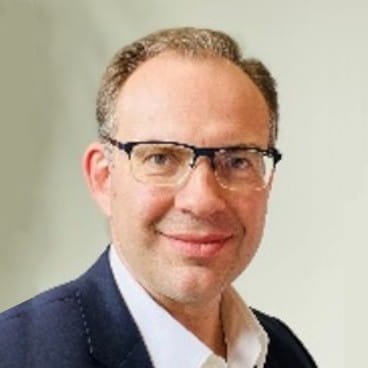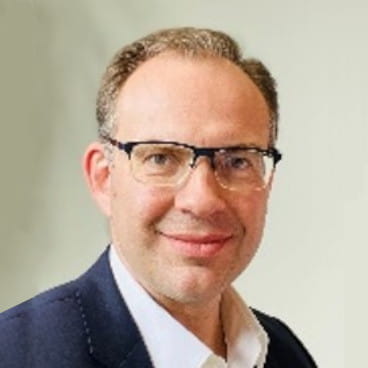Interview with Dr Michael Heldmann

Looking back at 25 years of Best Styles, Dr Michael Heldmann, CIO Systematic Equity, delves into the history of the strategy’s fundamental milestones and its evolution over time, underpinned by rigorous proprietary research and thoughtful innovation, as well as its ongoing development and the successful incorporation of Artificial Intelligence.
Q: Michael, looking back at 25 years of Best Styles performance, what do investors appreciate the most about Best Styles in your opinion?
Our investors are generally result-oriented and, as such, the stable and consistent outperformance over time is top of the list here. Clients also really appreciate the flexibility that Best Styles offers them to target their individual needs. Increasingly popular examples include, of course, sustainable investment solutions like Best Styles SRI (Sustainable and Responsible Investments), where in recent years we have been able to win new clients and to help existing ones meet their extended set of goals. Our income-oriented Global High Dividend strategy is another example where a client-specific solution grew into a successful global product offering.
Q: Can you tell us a bit more about the integration of sustainability aspects into the approach? How adaptable is the approach?
The integration of sustainability into Best Styles has been exceptionally smooth. With data being at the core of Best Styles, the increased availability of sustainability-related data has made our approach uniquely adept at reliably and robustly incorporating sustainability considerations into our analytical framework. Best Styles has been successfully extended to objectives such as CO2 reduction, improved sustainability ratings or exposure to SDGs (Sustainable Development Goals).
Q: As the Best Styles strategy celebrates its 25th anniversary, what has been key to its enduring success?
Our success is built on the deep belief in our investment philosophy, understanding that risk premia provide a reliable sources of excess returns.
To build a truly diversified core portfolio we need three essential ingredients: companies with attractive valuations, those with strong trends in share price, earnings or other important financial metrics, and highly resilient companies measured by their financial and industry position, often called high-quality companies.
But these three elements are not enough in order to manage a portfolio successfully through multiple economic and market cycles. They have to be combined in a comprehensive way using sophisticated risk management and portfolio construction techniques.
What sets us apart is our dedication to these principles, despite significant market turmoil from time to time, combined with continuous investment in research to improve our methods, and a commitment to cover an ever-increasing quantity of data. Furthermore, artificial intelligence, machine learning and alternative data have played and will play an important part in keeping our edge as well.
Q: If you look back, what have been particularly difficult decisions and why?
Often, a difficult decision for a process-driven manager is centered around finding the balance between the stability of the process and a constant need to evolve. Stability leads to faith in reproducibility and to a situation where a track record can be indicative of future performance. Without stability, this connection between the past and the future may not be valid any longer. At the same time, I believe one cannot follow a completely static model, since there is a need to deal with constant, sometimes structural change in markets. Hence, one needs to find a balance between continuity and innovation.
For Best Styles, we have made the conscious decision to adhere to the basic concepts of the strategy for the long run. These include the beliefs that risk premia are key in understanding market returns, that the five investment styles we exploit (Value, Momentum, Revisions, Growth, and Quality) are the main drivers of excess returns, and that portfolio construction is a key ingredient for a successful strategy.
At the same time, it is clear that the “details” of how we find Value stocks, stocks with a strong trend, or high-quality companies, need to be adapted and improved over time. Obvious reasons why include the availability of new data sources or methods.
We strive to incorporate all possible improvements as early as possible, often being a pioneer in the field (like, for example, in the area of AI). More subtle reasons include changes in the way the market prices certain risks. There are times, for instance, when the financial leverage of a company might be perceived as risky, while at other times it might be perceived as a necessary tool to boost the bottom line. This makes it necessary to regularly review and evolve the definition of Value, for example according to the market’s risk perception.
Hence, knowing where and when to be dynamic and where and when to prefer stability is key to a successful quantitative product.
Q: You mentioned AI as an example. In how far is this already part of Best Styles and are you working on integrating further innovations in that regard?
We have been using AI in the form of machine learning since 2007, including it as a complement to classic methods such as linear regression. Such usage will continue to be an important element of our approach.
Another very exciting area is the use of AI to generate insights from unstructured data. Take, for instance, Natural Language Processing (NLP), which we have been working on very intensively over the past decade and which we have been using very successfully. To give just an example: we convert earnings call transcripts into information that can actually be used for portfolio construction.
But despite all the hype around AI in the media, it is important to note that in the financial sector, the amount of data is not large enough to build complex AI models using techniques such as those employed by ChatGPT, for instance. It will always require the expertise of a quantitative investment expert to guide and train the AI model.
Ultimately, when using AI for investments, modern technology assists (but does not replace) the human mind. We call this approach “Man and Machine”.
Q: Where do you think factor investing is going, and what are its major challenges and opportunities?
The concept will remain just as relevant as it has been for the past 25 years. The basic idea that investors can choose to take on additional risks for additional returns will remain an essential long-term mechanism in capital markets and will therefore also be a viable strategy to reap excess returns in the future.
Looking at the next 5 to 10 years, I expect that there will be further developments on how to identify risk-premiumbearing companies, certainly also by incorporating more and more information into investment selection and risk management (that is, to find out where the highest premium can be had for the least amount of additional risk). AI and its sister topic alternative data will likely play an even greater role here in the future than they do at present.
Q: Michael, to summarise, how would you like investors to look at Best Styles and its 25-year history?
Best Styles is a time-tested investment solution to create a core equity exposure. Over 25 years we have demonstrated that the focus on extracting risk premia, with a keen eye on managing unwanted risks, can add value for investors. And the steadiness of the concept over time means that its success achieved in the past is very relevant for investors going forward.
The highly diversified nature of Best Styles, both in terms of the number of stocks but also in terms of sources for excess returns, provides a consistency that many investors seek. We believe that with Best Styles we have created and enhanced over time an investment solution that has not only delivered in the past but is also fit for the future.

DR MICHAEL HELDMANN, CFA CIO Systematic Equity
Prior to being named CIO of the overall Systematic Equity platform, Michael was CIO Systematic Equity US and based in San Francisco. Previously, he also managed Best Styles Emerging Markets and Best Styles Europe Equity products. Before joining the Systematic Equity team, he worked for the international laboratory CERN, Geneva, Switzerland as a researcher in the field of particle physics. He obtained a master’s degree in Physics from the University of Mainz, Germany and a PhD from the University of Freiburg, Germany. He is a CFA charterholder.






